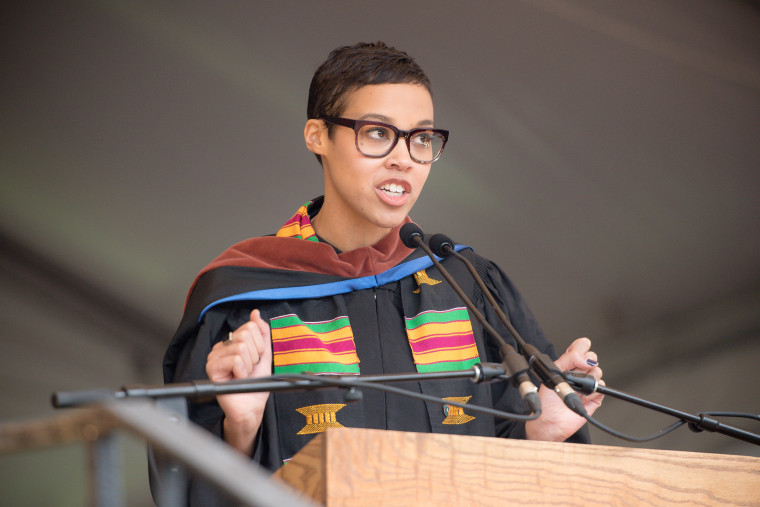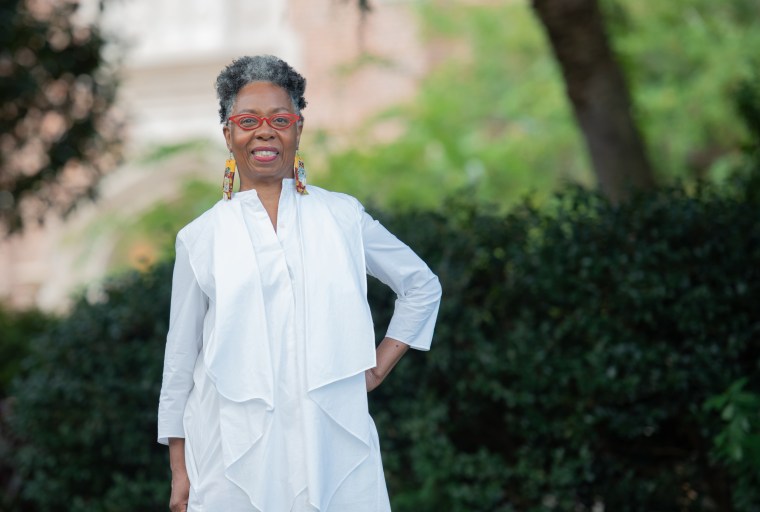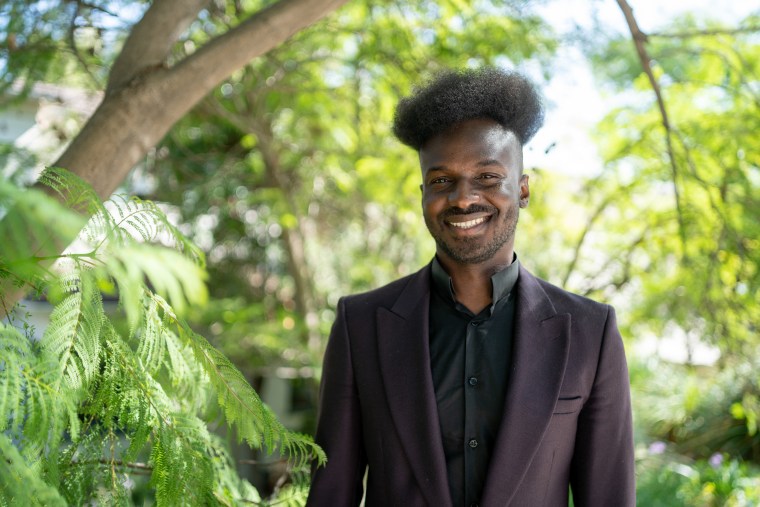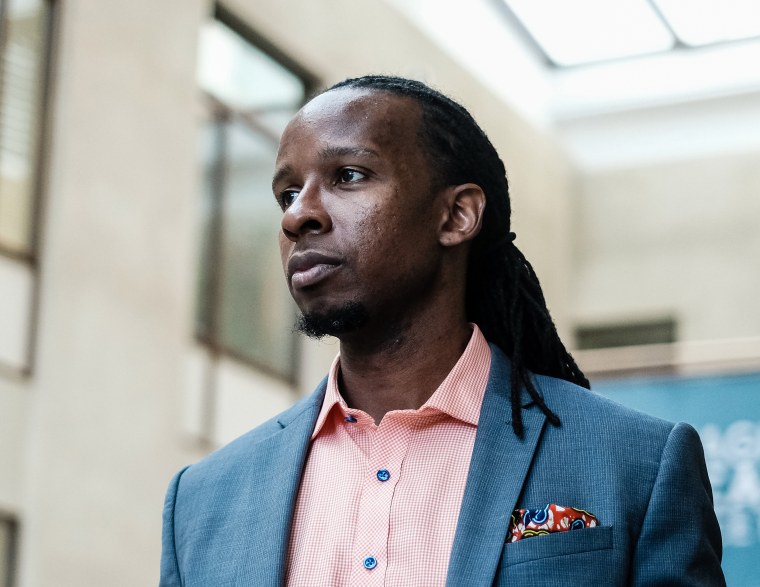Ibram X. Kendi has dedicated much of his life to fighting racism, an often-thankless pursuit that has left him “constantly attacked, demeaned and disappointed,” he said.
His work received affirmation this week in a way he never anticipated when he was honored as a MacArthur Fellow grant recipient, also known as a “genius grant.”
An author, historian and social commentator whose 2019 book, “How to Be An Antiracist,” became a New York Times No. 1 bestseller, Kendi said the acknowledgment is “a huge shot in the arm.”
Kendi, 39, is among 11 Black people in the 2021 class of 25 influencers, among the highest number of grant winners after 2020's group of 12, according to the MacArthur Foundation.
“It means that there are many Black people who are doing excellent work, and they are being recognized and supported,” Kendi, the director of the Center for Antiracist Research at Boston University, said. “One of the oldest anti-Black racist ideas is the notion that Black people are intellectually inferior. And so, this class is continuing the antiracist tradition of dispelling that racist myth, which is incredibly important.”

Jordan Casteel, like her peers, said the acknowledgment surprised her. Casteel is a painter who captures people and environments she encounters on the streets of Harlem, on the New York subway, in her classrooms, and in the spaces occupied by those closest to her.
The grant “grounds me in knowing that this work has value and is touching the lives of people far and wide,” she said. “I am excited to push my practice forward knowing there will be support every step of the way.”
Having so many people of color in the genius class matters to her, she said.
“There has never been a moment in history where ‘Black Excellence’ did not prevail,” Casteel said. “It is a phrase that is synonymous with the Black experience. Black people have always persevered, whether the light was shown on them or not. We are currently in a moment of light, and it is shining very bright. It is important for people to see how brilliant and multifaceted our communities are, and to recognize our collective genius.”

Jawole Willa Jo Zollar was honored for her work as a choreographer and dance entrepreneur, forging a style of dance-making and artistic leadership that tethers dance to cultural identity, civic engagement, community organizing and imperatives of social justice.
“Sometimes as an artist you can feel invisible in your journey,” she said. “For me, this acknowledgement provides the gratification of being seen. To be seen in the company of such distinguished fellows is truly uplifting and affirms that this work is important and vital.”
She added, “I’m glad about the increased recognition that highlights the achievements of Black people and allows for us to be celebrated for the brilliance that has always existed.”
The $625,000 grant is distributed over five years. But it’s the honor that resonates with the newly minted fellows and the contributions they are making to the Black community.

“It is a humbling and incredible honor to be named a MacArthur Fellow,” said Ibrahim Cissé, a biological physicist dedicated to improving understanding of the supramolecular dynamics of gene regulation and the biomolecular condensation processes in live cells.
“For me as a scientist who is also Black, and a graduate of an HBCU in North Carolina Central University, I am in awe of the works that many of this year’s fellows are doing in the Black community and for immigrants and communities of colors," he said. "Fellows fighting for things like prisoners’ voting rights, their participation in the arts and their access to education are amazing endeavors on issues that disproportionately affect Black people and people of color in general. So are the works examining U.S.-border and immigration system.”
The disciplines of the honorees are varied. Hanif M. Abdurraqib is a music critic, essayist and poet using the lens of popular music to examine the broader culture that produces and consumes it. Reginald Dwayne Betts is a poet, lawyer and advocate who draws on his own experience of incarceration. Nicole Fleetwood is an award-winning author, curator and academic whose work draws attention to Black artists and the issue of mass incarceration, increasing representation of incarcerated individuals in the art world while giving voice to their experiences.
There is also Jacqueline Stewart, a film scholar, archivist and curator illuminating the contributions that overlooked Black filmmakers and communities of spectators have made to cinema’s development as an art form. Keeanga-Yamahtta Taylor is a historian and writer revealing the political and economic forces underlying racial inequality in the U.S.
Desmond Meade, a voting rights activist and first-time published author who, as a returning citizen himself (one who returns home after being in prison), leads efforts to restore voting rights to formerly incarcerated citizens and works to reshape criminal justice policies at local, state and national government levels. And Safiya Noble is an internet studies and digital media scholar altering the understanding of the ways that digital technologies and internet architectures embed bias.
Zollar said, “Many people are doing important work that addresses the past, present, and future and noting that we are not alone in this work. As people, and specifically African Americans, we go through periods of tumult constantly. Therefore, we need work that can speak to our humanity as individuals and as a community. We must analyze how we support each other through tough times.”
Fleetwood, the author and curator, stressed the importance of Black women’s role in American development. “Black women have long been at the forefront of freedom struggles and access for all. Black Excellence should not be an elitist concept relegated to an elite group in glorified institutions. Black Excellence is the long history of care, love, radical kinship and justice that Black women have built so that all can survive.”
“If the past two years have taught me anything,” Casteel said, “it is to predict nothing and hold hope for everything. As a new year approaches, I am thinking about the power of empathy, grace and collective voice. I hope we continue to listen to one another and create new paths forward.”
CORRECTION (Oct. 6, 2021, 3:05 p.m.) A previous version of this article mischaracterized the number of Black winners of this year’s MacArthur Fellowship grants. The 2020 class holds the record with 12 Black grantees; the 11 Black winners of 2021 is not a record.

